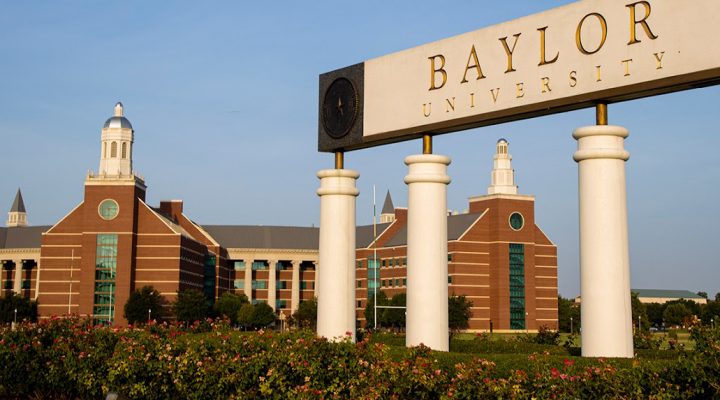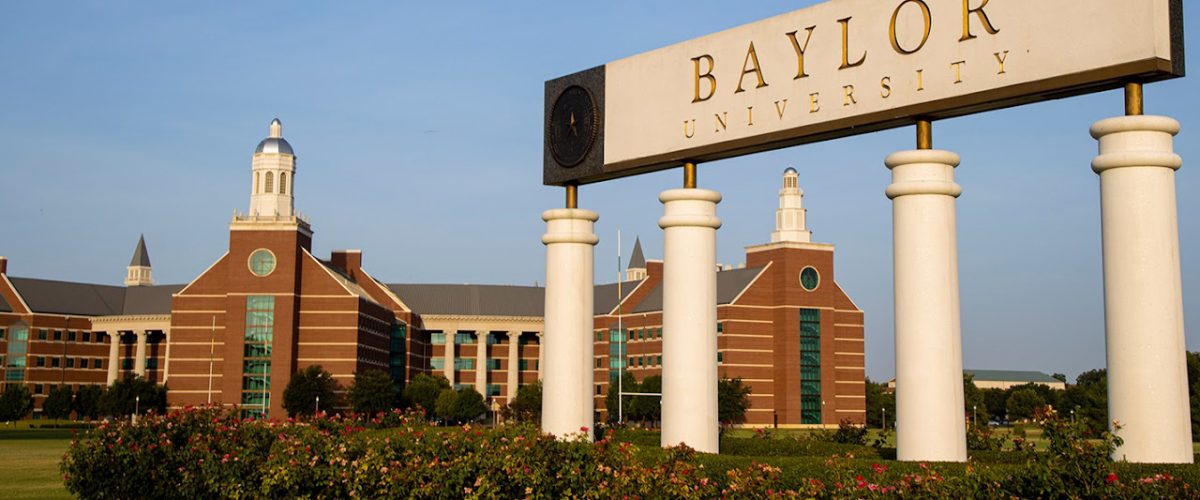More than 1,000 alumni, faculty and staff members of Baylor University have signed on to a letter calling on the Baptist school to “end the harmful, separate and unequal treatment” of LGBTQ people in the Baylor family and to ensure that LGTBQ students on campus are “protected from sexual harassment in all forms.”
The public letter came just days after news broke that the university had sought — and received — a new exemption from the U.S. Department of Education to discriminate against LGBTQ students while still receiving federal aid. But its authors say that legal matter is not the reason for their letter.
“We are not the university’s legal advisors, nor do we believe that the legal minimum is the proper standard for an institution that seeks ‘to bring light into the world,’” they explain. “We write because statements made by Baylor in its letter to DOE raise deep moral and spiritual concerns that are at the heart of Baylor’s past, present and future; specifically, how we as children of God are called to treat one another. We also are concerned with the letter’s representation of Baylor’s Baptist heritage and tradition.”
In addition to calling for protection for LGBTQ students, faculty and staff, the letter urges corrections be made to statements in the DOE letter “regarding the university’s Baptist faith traditions, especially statements that disregard the university’s history and the central nature of the Baptist faith.”
In reality, the authors say, LGBTQ people on the Baylor campus “continue to be subject to separate and unequal treatment in many aspects of campus life.”
The letter recounts past incidents of disagreement between administration and student or alumni groups, including the long-running dispute over not chartering a national chapter of a Greek organization for LGBTQ students and allies.
“While some incremental steps have been taken to achieve a more inclusive campus environment, harmful inequities remain.”
“While some incremental steps have been taken to achieve a more inclusive campus environment, harmful inequities remain,” the letter says. “At present, the university’s policies prohibit LGBTQIA+ students and their allies from chartering student organizations that the university views as ‘advocating’ for LGBTQIA+ people and their sexual identities. Among more than 400 student organizations at Baylor, only one is focused on LGBTQIA+ students, and it was created by the university’s administration after the perpetual denial of numerous other student-led charters, causing students to abandon any hope of obtaining approval.”
Further, “university faculty who are gay cannot openly be in same-sex relationships or marriages without fear of losing their positions. Many faculty members have children or other family members who are LGBTQIA+ but question whether they can speak truthfully about the sexual identities and orientations of their family members. The pain and isolation that LGBTQIA+ community members have experienced navigating the current campus environment is unacceptable. Baylor can and should be better than this.”
Seeking this new DOE exemption “undermines” recent statements by university leaders that they hoped to build trust with LGBTQ students, the letter charges.
And just because it may be legal to be exempt from discrimination doesn’t mean it is moral to do so, the authors add. “The bare legal minimum is not — and should not be — the standard for a university that seeks to prepare people for Christian leadership in the world. Unfortunately, we cannot help but be reminded that, for the majority of its existence, Baylor’s policies excluded Black students from admission to the university, including for nearly a decade after Brown v. Board of Education was decided. To be sure, for many years these exclusionary policies were ‘legal,’ but they were not moral.”
The letter also takes issue with the way Baylor’s request to the DOE portrayed the university’s religious affiliation: “We believe the university’s statements in its letter to DOE suggesting that Baylor’s governing body, the board of regents, operates as a religious institution with controlling doctrine are fallacious. Neither the Baylor board of regents nor any other body is the ‘high priest’ that mandates the beliefs of those who walk in the Baptist faith.”
The letter concludes with an assertion that, “Our faith does not discriminate.”
Related articles:
Baylor asks for — and gets — new exemption to discriminate against LGBTQ students
Baylor walks the line on LGBTQ student group as critics pounce from the right | Analysis by Mark Wingfield
25 faith-based schools named in LGBTQ discrimination case against Department of Education
Baptist schools seek waiver from LBGT discrimination ban
LGBTQ-friendly student group, alumni vow to fight for inclusion at Baylor
Is it possible for a Baptist school to maintain top-tier recognition and still discriminate against gay students? | Analysis by Rodney Kennedy


